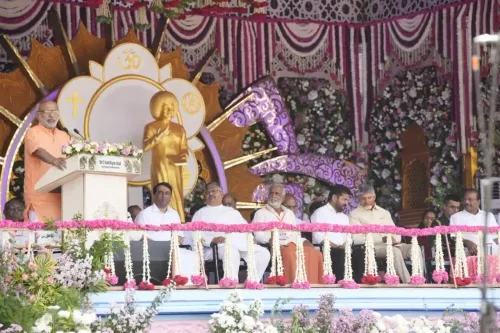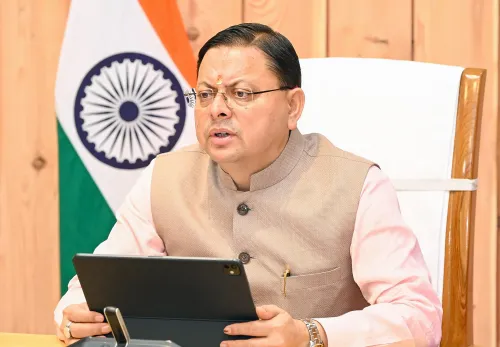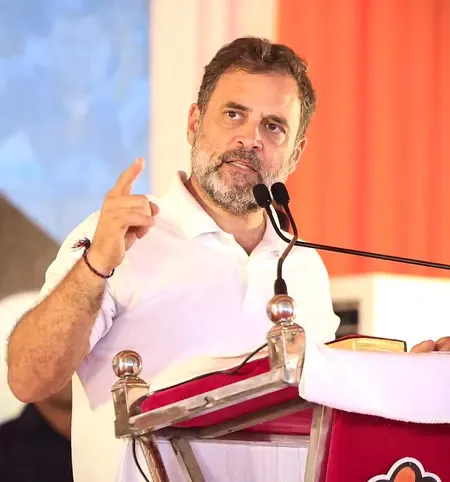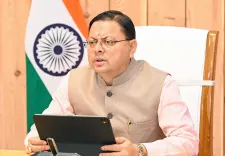Are India and Japan Natural Partners with Limitless Potential?
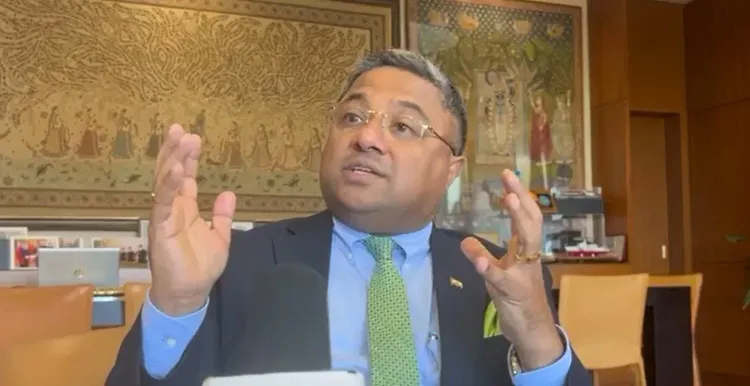
Synopsis
Key Takeaways
- India and Japan share a strong historical relationship.
- Ambassador Sibi George emphasizes limitless partnership potential.
- Economic engagement is a core pillar of their relationship.
- India's role in global diplomacy has strengthened under PM Modi.
- G20 Summit highlighted India's transformation and leadership.
Tokyo, Aug 20 (NationPress) In an exclusive conversation with IANS, Indian Ambassador to Japan, Sibi George, shared insights on the strengthening ties between India and Japan, the shifting global landscape, and how Prime Minister Narendra Modi's diplomatic efforts have influenced India's standing on the world stage.
Highlighting the historical connections between the two nations, the Ambassador described their bilateral relationship as a “quantum leap” in recent times, asserting that “the sky is not even the limit” for their collaboration.
Here is the complete interview:
IANS: Can India and Japan together form a formidable partnership in the new world order?
George: Since 2014, India and Japan established what is termed a Special Strategic and Global Partnership. This has bolstered the long-standing civilizational ties between our countries.
Since then, we have witnessed consistent advancement in our relationship across various domains: political interactions, business collaborations, defense and security partnerships, cultural exchanges, and scientific cooperation. This progress has been evident over the past decade. Amidst the changing geopolitical and geoeconomic landscape, we are committed to enhancing our engagement across all these fronts.
India and Japan share a vision as like-minded nations, natural allies, and the sky is not even the limit for our partnership. We are also collaborating in the realm of space exploration. The last few years have seen a remarkable leap in our relationship, and this momentum will persist.
We are crafting a new roadmap and vision for our partnership — one that elevates it to unprecedented levels, incorporating all conceivable dimensions. This includes collaboration between Indian states and Japanese prefectures. We firmly believe that Tokyo is not the entirety of Japan — the nation encompasses much more.
Therefore, it is crucial for us to engage with every prefecture, and that is what we have been actively pursuing in recent years. Likewise, we are connecting Japanese prefectures with Indian states, and we have received an encouraging response from Japan regarding this initiative.
IANS: How has PM Modi's diplomacy aided India in challenging times?
George: In recent years, India has played a pivotal role in global diplomacy. A prime example is the G20 Summit we hosted in 2023.
This summit was a significant triumph for Indian diplomacy. Simultaneously, Japan hosted the G7 Summit, and both nations coordinated closely. Prime Minister Modi's visit to Japan for the Hiroshima Summit was noteworthy, where we unveiled a statue of Mahatma Gandhi at Hiroshima Peace Park.
This statue has now become a symbol of India's presence in Hiroshima. Every visitor is drawn to the Mahatma Gandhi statue, which embodies India's commitment to peace and non-violence, principles that both Mahatma Gandhi and India represent.
The G20 Summit itself was an extraordinary occasion. We organized nearly 200 events across 50 cities in India, welcoming 200 Japanese delegations during this period. Each of them returned with the impression that they had encountered a 'New India.' This was a moment of pride, showcasing India's transformation and diplomatic prowess.
IANS: What was India's most significant achievement during the G20?
George: One of the most remarkable outcomes was the unanimous adoption of a vision document, something that had not been achieved previously. We successfully united all parties to agree on a document filled with hope for the world.
Moreover, we provided a platform for the Global South. Prior to the G20, India convened the Global South Summit, uniting the voices of developing nations at the G20 main table. A landmark success was securing Africa's inclusion as a permanent member of the G20, representing over a billion individuals.
India comprises one-sixth of the world's population, yet we do not contribute one-sixth of the world's issues — instead, we present solutions. Be it in diplomacy, economics, or crisis resolution, India continually offers solutions. With 1.5 billion people living in harmony within a democratic framework and the world's largest youth population — this is the most vital message India conveys today.
IANS: How has India's relationship with other nations transformed under PM Modi's guidance?
George: Our interactions with almost every country have significantly progressed. There is now a new depth and substance to our diplomatic endeavors.
Take Japan, a crucial partner in our Special Strategic and Global Partnership, as an example. Economic engagement stands as a major pillar in our relationship. Currently, there are 1,500 Japanese companies operating in India, each representing a success story.
A recent survey by JETRO indicates that Japanese businesses perceive India as their top choice for expansion.
IANS: What makes the India-Japan economic narrative so compelling?
George: As an Ambassador, I always say, every Ambassador is a salesman, and I take great pride in presenting an exceptional product. The India–Japan success story is immensely attractive.
Today, India is the fourth-largest economy globally, offering countless opportunities for Japan to seize. This is crucial for tackling the geopolitical and geoeconomic challenges we collectively face. I am confident we are heading in the right direction.


